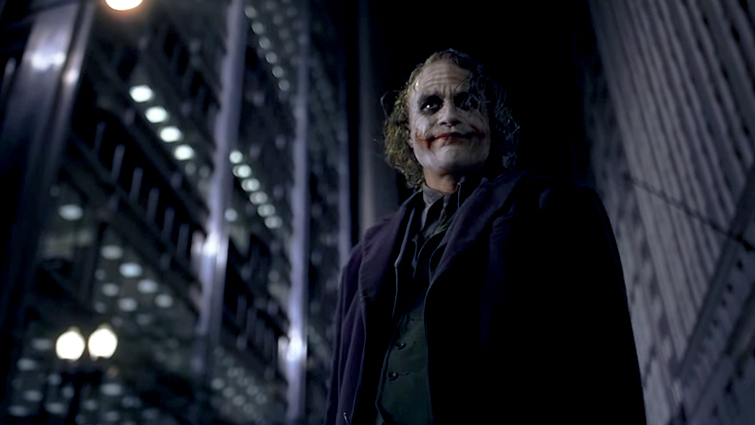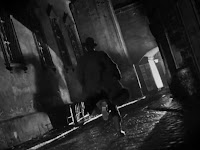Cinematography: Cinematography
is the art of photography or camera work in film making to create a greater a larger meaning, this is important
because it adds features to the film which are usually of a specific genre. For
example crime thrillers may usually have birds eye view to show characters’
vulnerability and the theme of pursuit to add extra effect to the movie scenes.
Cinematography creates more mis en scene to portray what kind of situation the
characters are in, this micro element puts emphasis onto what the scene is
about such as camera angles to the face will show facial expressions indicating
how the current dilemma in the film makes them feel and will partially indicate
what they will do next. This micro-element puts emphasis on the films plot and
adds meaning to all the action going on in the film with different camera angles put an idealistic approach on the action on which is the best angle to film it on for the audience to communicate the main theme best. A film without
cinematography would have no effect on audience and would be hard to catch on
to what is going on
3
features of cinematography:
Camera angles
Camera movement
Camera shot size
Camera sizes:
Camera shot size
Camera sizes:
Extreme long shot sometimes known as an establishing shot to show setting from afar so the audience know where film will take place.for example mission impossible extreme long shot: 

Long shot or a full shot is the realistic view of the scene where it is taking place to show the audience where the action is taking place can also be used to draw attention to the scene after the establishing shot for example the good the bad the ugly;

Medium shot is to present the person from the waist up this is to draw attention to the character specially for dialogue for example kill bill:

Camera angle:
Birds eye view is a shot directed overhead at a character can be used to establish a scene where the character for example enters a building. For example kill bill:

Eye level shot is a shot depicting the characters face from the eyes level to give a naturalistic effect to the scene. For example psycho:

Low angle shot is a shot from a low angle to make things e.g. characters to appear larger like giants and make them taller and possibly more threatening and scary. For example the dark knight:

Dutch angle shot is where the camera is tipped and not at level with the floor to give a sense of unease within the scene. For example the third man:

Camera movements:
Pan is a horizontal camera movement across a scene to another character or object of significance
Birds eye view is when the camera is attached to a helicopter and is moving over the setting in an establishing shot
Floating camera movement is the smooth movement of the camera it uses a range of counterweights and gyroscopes to keep a handheld camera steady enough to be smooth.
Thriller movie opening analysis: Vertigo
Extreme close up shot to the persons eye shows detail and possibly the fear in the eye so we know quite well to expect fear psychologically establishing the films thriller genre and possibly jumpy nature and makes us question who's eye we are looking at and who's eyes we see the film through, this is so you can see she is tense.

The angle of these shots are mostly eye level to show that the film is straight in your face and you cant miss any effects put in or maybe a metaphor to "face your fears" psychologically and creates a very naturalistic effect of fear, this angle also gives an establishing view of the characters its close so you can see his face is red and sweaty.

The camera in this scene uses zooming into the face to create intensity showing the films explicit portrayal of fears throughout this is used almost as a "warning" to what will happen next in the films many scenes, also making us concentrate on the details more so we can see if the woman is fearful and tense.

I am particularly interested in possibly using low angle shots to create an illusion of threat to portray a villain of some sort or an object of significance for example a building. I am also interested in the dutch angle shot as it creates and edgy effect on the audience and boosts the intensity of the genre. Extreme close ups seem good to me as they portray detail and emotion on faces to create a psychological effect on audience.

Medium shot is to present the person from the waist up this is to draw attention to the character specially for dialogue for example kill bill:

Camera angle:
Birds eye view is a shot directed overhead at a character can be used to establish a scene where the character for example enters a building. For example kill bill:

Eye level shot is a shot depicting the characters face from the eyes level to give a naturalistic effect to the scene. For example psycho:
Low angle shot is a shot from a low angle to make things e.g. characters to appear larger like giants and make them taller and possibly more threatening and scary. For example the dark knight:

Dutch angle shot is where the camera is tipped and not at level with the floor to give a sense of unease within the scene. For example the third man:

Camera movements:
Pan is a horizontal camera movement across a scene to another character or object of significance
Birds eye view is when the camera is attached to a helicopter and is moving over the setting in an establishing shot
Floating camera movement is the smooth movement of the camera it uses a range of counterweights and gyroscopes to keep a handheld camera steady enough to be smooth.
Thriller movie opening analysis: Vertigo
Extreme close up shot to the persons eye shows detail and possibly the fear in the eye so we know quite well to expect fear psychologically establishing the films thriller genre and possibly jumpy nature and makes us question who's eye we are looking at and who's eyes we see the film through, this is so you can see she is tense.

The angle of these shots are mostly eye level to show that the film is straight in your face and you cant miss any effects put in or maybe a metaphor to "face your fears" psychologically and creates a very naturalistic effect of fear, this angle also gives an establishing view of the characters its close so you can see his face is red and sweaty.

The camera in this scene uses zooming into the face to create intensity showing the films explicit portrayal of fears throughout this is used almost as a "warning" to what will happen next in the films many scenes, also making us concentrate on the details more so we can see if the woman is fearful and tense.

I am particularly interested in possibly using low angle shots to create an illusion of threat to portray a villain of some sort or an object of significance for example a building. I am also interested in the dutch angle shot as it creates and edgy effect on the audience and boosts the intensity of the genre. Extreme close ups seem good to me as they portray detail and emotion on faces to create a psychological effect on audience.
No comments:
Post a Comment